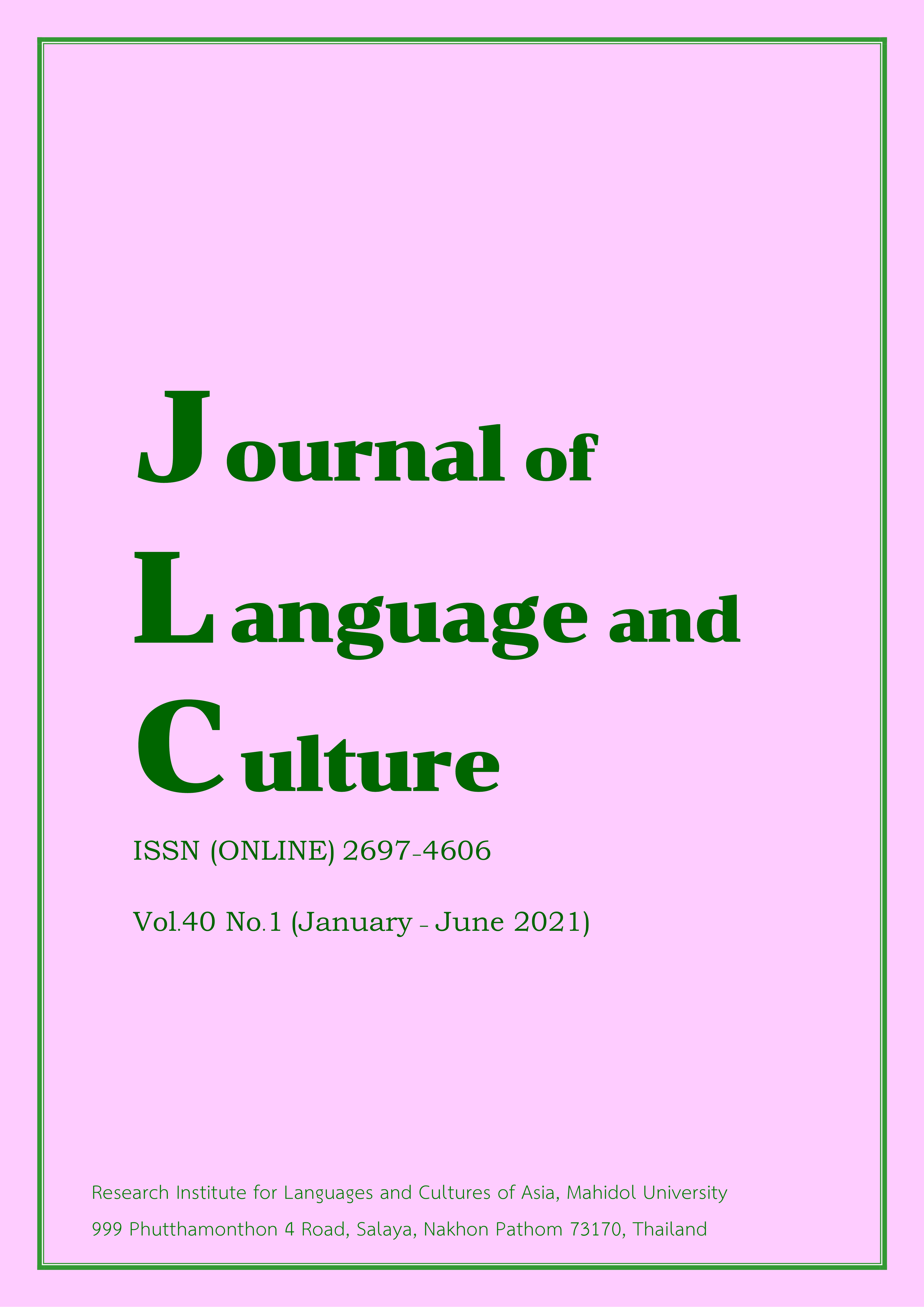Hashtag: Language power and myth
Main Article Content
Abstract
Hashtag (#), the often seen symbol on social media was first employed by Twitter to convey onformation about social circumstances, persons, objects or others interesting trends. This article aims to study and analyze titles and their contents on Twitter with the ability to reflect phenomena or social beliefs through 36 popular hashtags and 720 tweets from 2013-2020. The study found that global hashtags have mostly related to political issues while local hashtag content is most relevant to politics and government, including social and cultural issues. This phenomenon reflects the power of language underlining the myth of formality from an international perspective with high social impact whereas the local perspective, especially in Thailand, expresses the myth of informality with low impact. Finally, this more clearly implies the superiority of global concept towards inferiority through locality.
Article Details
The articles featured in the Journal of Language and Culture (JLC) constitute academic works representing the viewpoints of the respective author(s). It is crucial to note that these opinions do not necessarily reflect those of the Editorial Board.
All articles published in JLC are released under the Creative Commons Attribution 4.0 International License (CC BY 4.0). This license grants permission for unrestricted use, distribution, and reproduction in any medium, provided proper credit is given to the original author(s) and the source.


